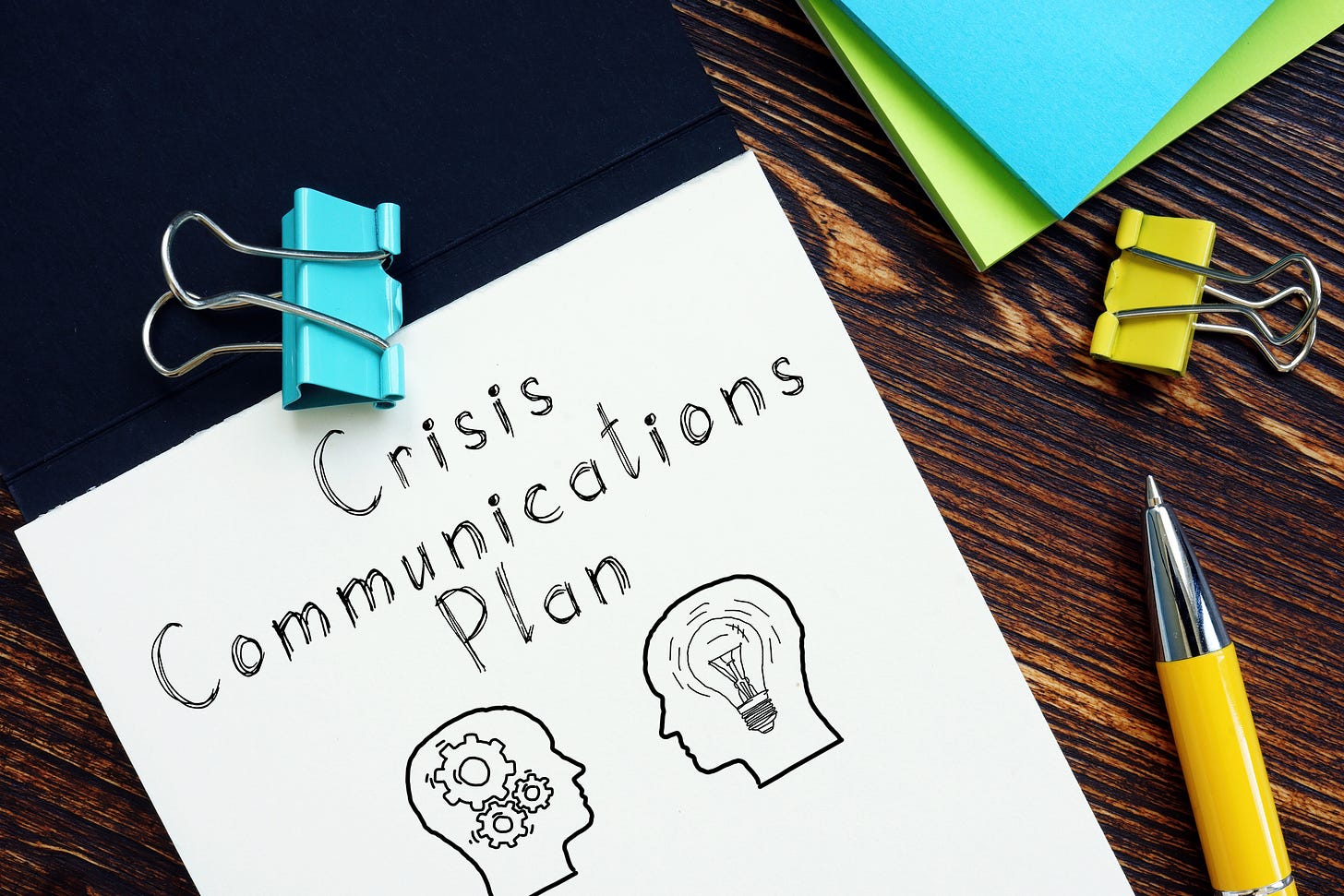Crisis Communications 101: How to Communicate Effectively in a Crisis
When a crisis strikes, it's important to communicate effectively. The more you can control the response to the crisis, the better your team's chances are at mitigating any damage to your reputation.
Whether you’re running a political campaign or a Fortune 500 company, a crisis is bound to affect you at some point. And trust me, NO ONE likes dealing with crises (other than those paid lots of money to manage them, that is!)
So rather than panic if you find yourself in the middle of a crisis, the best solution is to prepare for any possible situation ahead of time so that you can ensure you are communicating effectively with your target audience if and when the time comes.
The more control your team has over the message delivered during a crisis, the better chances you’ll have at controlling the response and mitigating any potential damage to your reputation.
The 9 golden rules of crisis communications:
Be transparent and honest: In a crisis, it's important to be transparent with your stakeholders. This means providing them with accurate and timely information about the crisis. If you don't know something, be honest about it.
Be clear and concise: Use simple language that your target audience can understand.
Be empathetic: Show empathy for those who have been affected by the crisis. This means listening to their concerns and taking them seriously.
Be consistent: Your message should be consistent across all channels — including any social posts, press releases, website updates you make.
Be timely: Don't wait until the situation has blown over to start communicating. You’ll have a better chance of taking control of the crisis if you respond with some urgency.
Be prepared: Make sure you have a working plan in place for crisis communications. That way, if/when the situation arises, you can act with speed and purpose to take control of the situation.
Use social media: Social media can be a powerful tool for communicating in a crisis. Take advantage of it to share updates, answer questions, and show empathy with your target audience.
Be prepared for the unexpected: Because things don't always go according to plan in a crisis, you should always be prepared for the unexpected and be flexible in your approach.
Get help from experts: Don’t be afraid to ask for help from others if you're not sure how to communicate in a crisis.
Communicating during a crisis may seem complex and challenging on the surface, but can be easily managed by following the nine golden rules of crisis communications. Plan ahead, communicate smartly, and take swift and clear action in the face of crisis if you want the best chance of mitigating any damage to your reputation.



